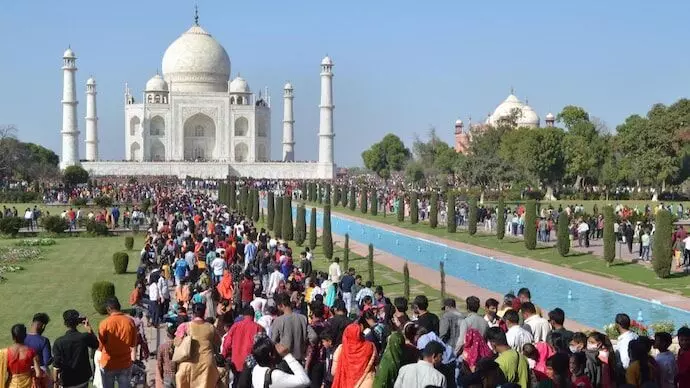Indian tourism sector to double in 10 years, says WTTC chief
Tourism represents about seven per cent of the Indian economy
By Newsmeter Network
Mumbai: The Indian tourism sector is expected to double in size to USD 523 billion in the next 10 years, according to World Travel and Tourism Council (WTTC) President and CEO Julia Simpson.
WTTC works with governments on issues of the travel and tourism industry, and is the global authority on the economic and social contribution of the sector.
“The travel and tourism sector employs 45 million people in India, and is going to double in its value. In 10 years, the sector is going to be worth USD 523 billion in India, more than double the present size of USD 256 billion,” Simpson told PTI in an interview.
“In 10 years, the tourism sector in India will be providing jobs to 63 million people,” she said.
India is one of the most beautiful and amazing countries in the world, Simpson said. Tourists and visitors across the centuries have been attracted to its shores and wonderful cities. India continues to welcome the world with open arms and the Indian hospitality is incredible, she added.
“Tourism represents about seven per cent of the Indian economy and in 2019 it was about USD 211 billion. Now it is about USD 256 billion and gives jobs to 45 million people in India,” she said.
“If you look at the impact of tourism in terms of the greenhouse gas emissions on India, it represents about five per cent of all India's greenhouse gas emissions and that's probably about 250 billion kilos of carbon (dioxide) every year. That is actually the biggest greenhouse gas emission in the tourism sector after the US and China,” she said.
The good news is that while the tourism sector has been growing, the greenhouse gas emissions haven't been growing as fast, she said. That means India is becoming more and more efficient for travel and tourism, she added.
“We are also keen to talk to the Indian government to ensure that it is reaching out to the aviation sector to help produce more sustainable aviation fuel because we can't really do tourism without aviation,” Simpson said.
“We need the aviation sector. We will have more people travelling by air and we need to do that more sustainably. And the only real opportunity right now is through sustainable aviation fuel. So we really encourage the Indian government to incentivize its production,” she said.
Asked if WTTC has approached the Indian government to take measures to ensure sustainable and eco-friendly tourism, Simpson said, “Well, we do meet Indian ministers on a regular basis, mostly at the big events like the World Travel Market, and I always raise these issues.”
“The great thing about the travel and tourism sector is that it employs high-end people like engineers, AI experts, technology, experts, financial and marketing experts. We also employ people for whom it may be their first job or it may be an opportunity to lift them out of an informal economy and work in a formal sector,” she said.
Almost 50 per cent of global tourism happens near coastal resorts and areas close to sea, she said. People want to see the pristine beaches and go for amazing water sports. However, coastal areas are very vulnerable to global warming, in terms of dangerous weather changes and rising sea levels, she added.
The WTTC recently released a report about measures to help protect coastal areas, she said. “If you look at places like Miami, they have been investing a lot in reinforcing their coastal area. They have good alarm systems and also build infrastructure that resists some of these very challenging weather events.
There are examples around the world on how countries can strengthen their travel and tourism sector, she said. “Tourists don't want to see a lot of concrete; what they want to see is the natural India around its coastline, with beautiful natural beaches, flora and fauna.
“We would like to work with the Indian government to help restore some of the natural flora. One big message for India is about decarbonizing road transport as quickly as possible,” she said.
“I know Prime Minister Modi has made it one of his top priorities to try and clean up air pollution. And a part of that includes moving away from coal fired plants and investing more in solar and renewable energy. Under PM Modi’s leadership, India is going to be one of the most advanced developing economies in the world,” Simpson said.
Inputs from PTI.